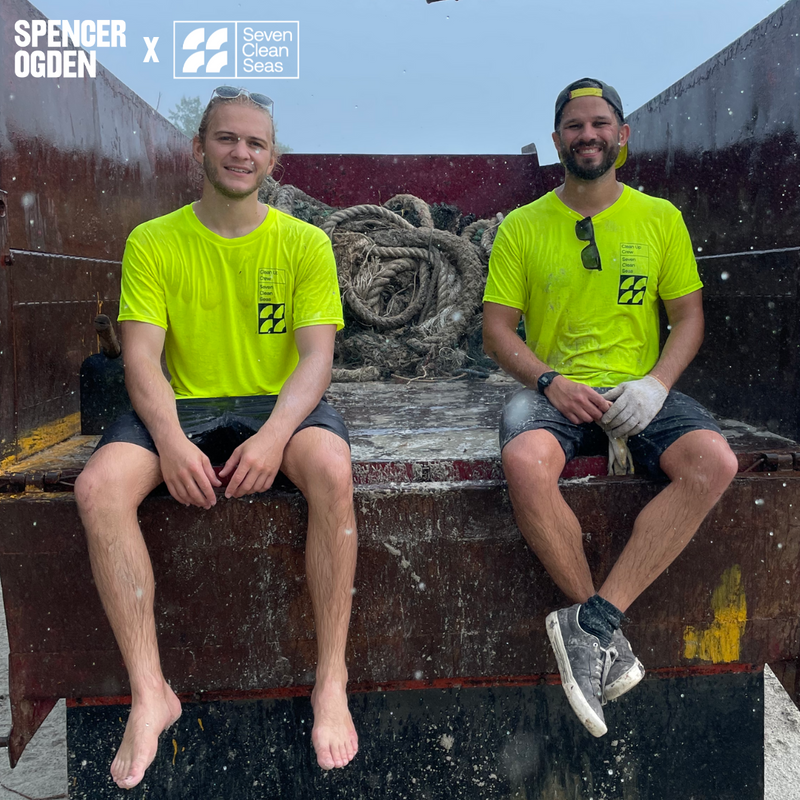
Seven Clean Seas strives to build a community committed to challenging the status quo, getting involved and cleaning the seas. Based in south-east Asia, Seven Clean Seas supports a diverse range of businesses and organizations, working towards achieving plastic neutrality and reducing their plastic footprint. Through their work, this ocean impact organisation helps local communities to thrive and prosper and partnerships with businesses like Spencer Ogden enable them to create permanent positive change in some of the most polluted areas on earth. We caught up with CEO and founder of Seven Clean Seas, Tom Peacock-Nazil, to find out, where it all began.
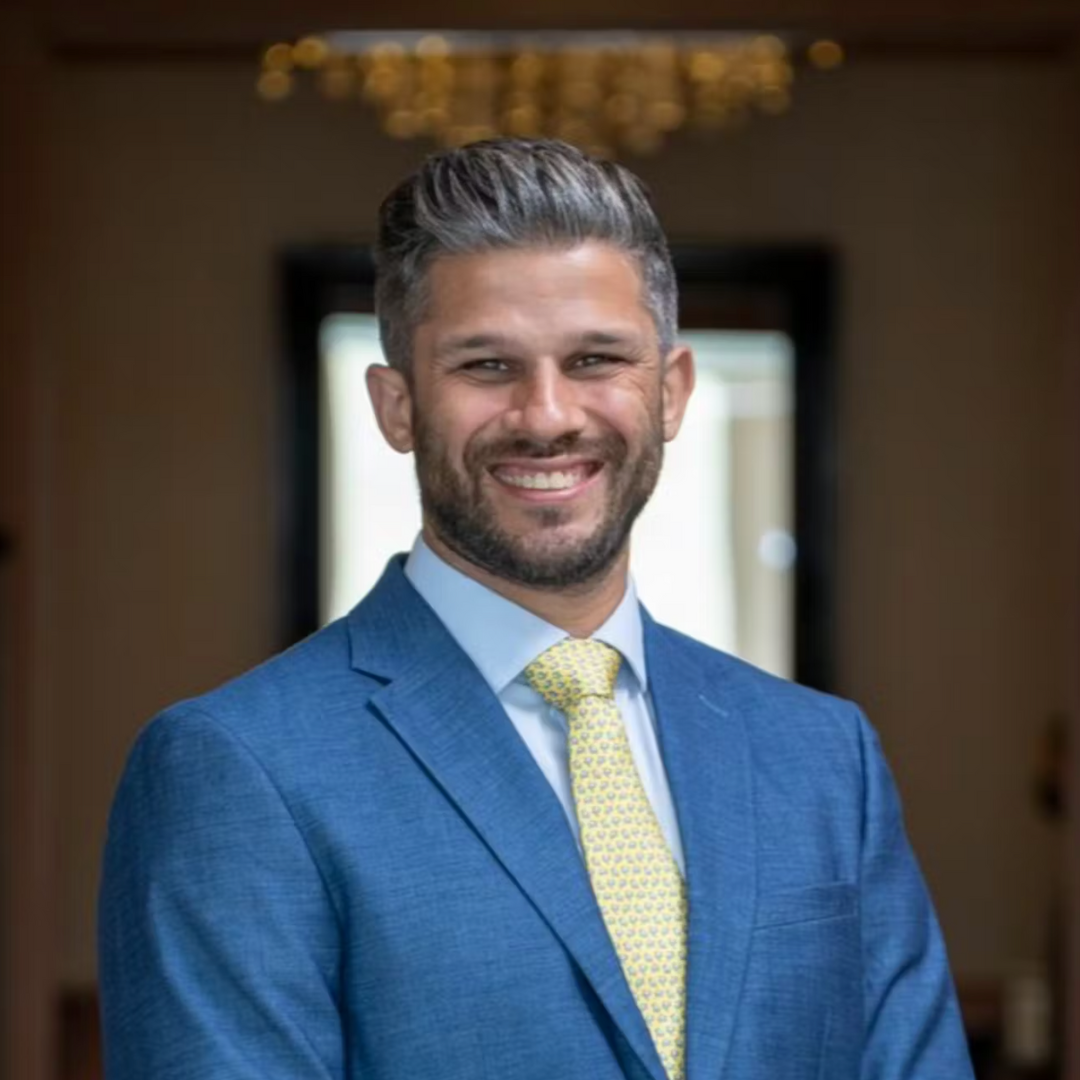
What is Seven Clean Seas and what is it's mission?
Seven Clean Seas is an ocean impact organisation that my wife and I started back in June 2018. Our main goal was to find a way to enable ocean clean-up projects and really contribute towards removing plastic from the world’s marine ecosystems. That mission hasn't changed to this day. Our vision is an ocean without plastic- picture it! We want people to really visualize the absolute amazingness of the ocean and everything that calls it home, and to aspire to help restore that level of magnificence and clarity that our oceans used to have.
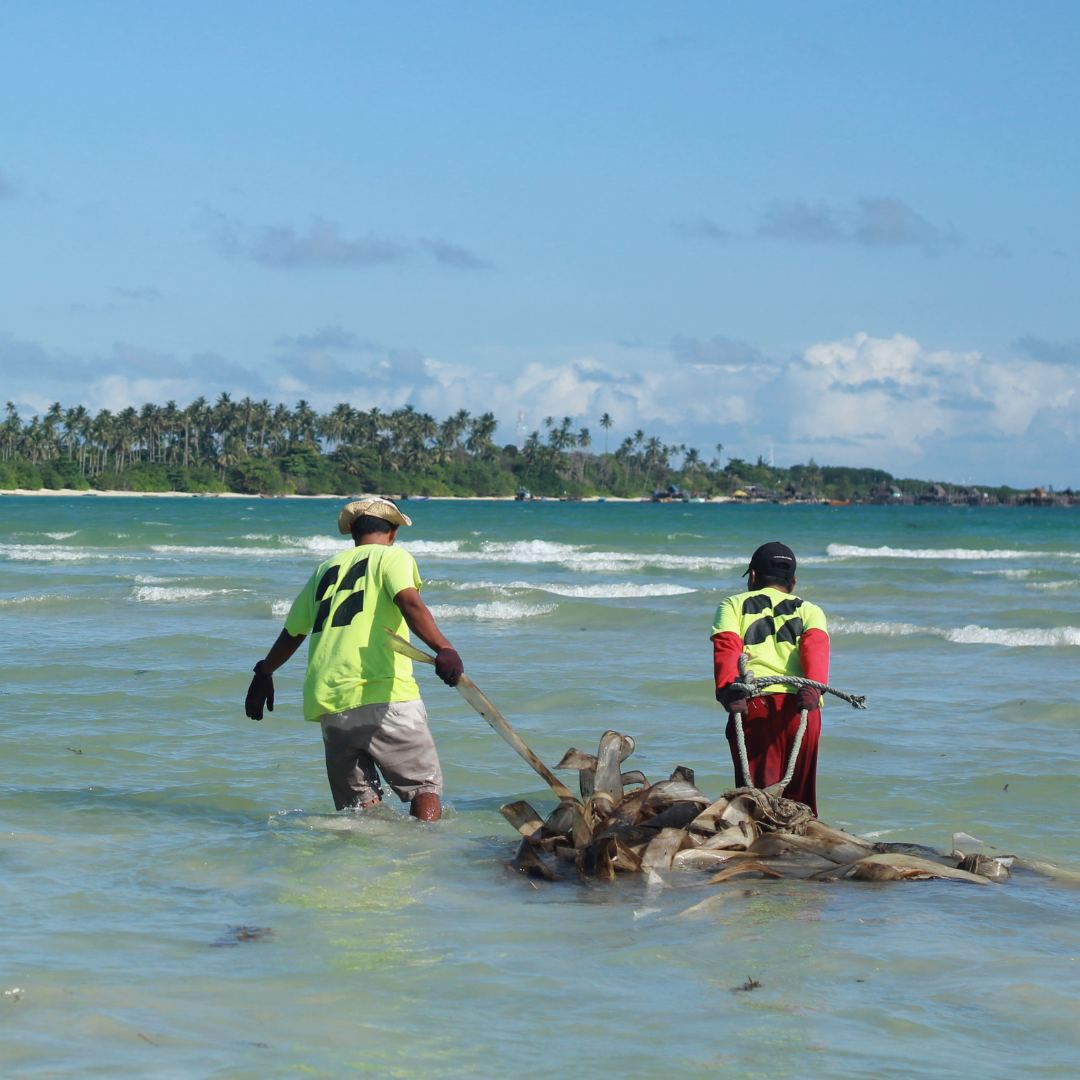
As CEO and founder of Seven Clean Seas, what made you start it?
I’ve been coming to Malaysia my entire life; I’m half Malaysian and I’ve always loved Southeast Asia. One thing that has always stood out to me is the level of plastic pollution in this part of the world. A few years ago, my wife and I took a trip to the beautiful paradise island of ‘Kohlipe’, off the west coast of Thailand. We spent the entire day enjoying Sunrise Beach and loved it so much that we decided to return the next day, however, overnight a storm had set in. When we returned to the island, there was a floating slick of oil on the usually turquoise water and so much plastic on the white sand beach it was impossible to walk on it. My wife and I thought, we can't fix this problem alone, but we can go back to Singapore and try and raise awareness about it. We chose to do that through the medium of beach, clean-ups back in July 2018. That was really the genesis of everything!
Seven Clean Seas partner with many businesses. How did the partnership with Spencer Ogden come about?
We work with many businesses. One way we support companies to offset their plastic footprint is through Plastic Credits. The other way is how we link environmental impact to whichever service or product that an organization sells so the business can benefit too. With Spencer Ogden, for example, for each placement made by a consultant, we go out and remove 1kg of plastic from ocean. It's a creative way to create environmental and social impact for an organization, and it's particularly important as a revenue stream for us. Having a plethora of partners, gives us the confidence to grow our teams, hire more people and create environmental impact.
Tell us more about plastic neutrality and what this means?
To achieve plastic neutrality as a business, this means that for every amount of plastic created, an equal amount of plastic waste must be removed from the environment. At Seven Clean Seas, we have a four-point engagement strategy which helps companies that we work with achieve plastic neutrality and become certified plastic neutral. Our biggest partnership to date was in collaboration with the FIFA World Cup, 2020 held in Qatar. We estimated that the event would use 600 odd tons of plastic. To offset this, we removed 600 odd tons of plastic from the ocean, on behalf of FIFA World Cup, to help neutralize their environmental impact.
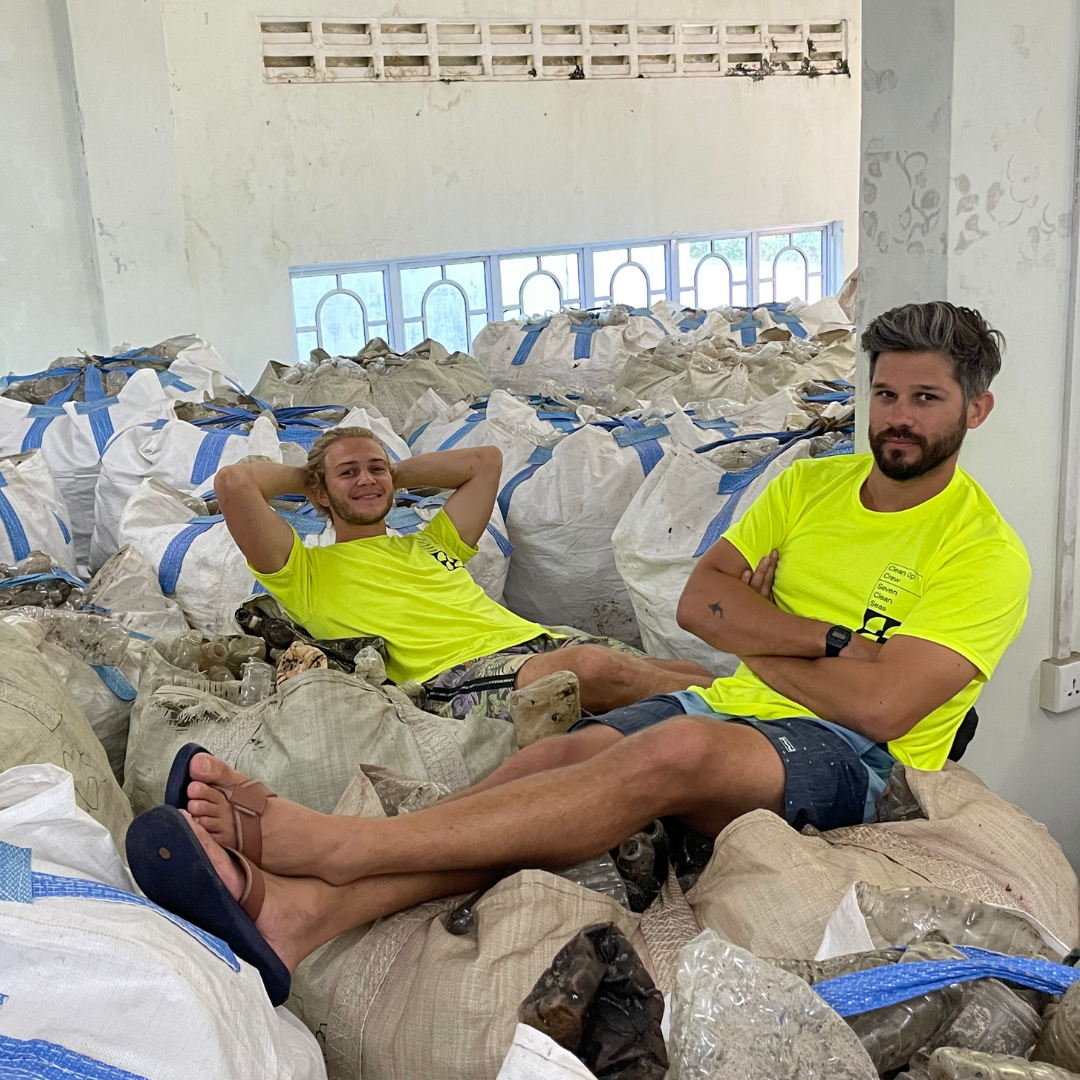
There are lots of myths out there about plastic waste – are there any myths you would like to bust?
Yes massively. While most plastic waste
is technically recyclable, that doesn’t mean its economically recyclable. Therefore, a lot of plastic that people throw away still finds its way into landfills. There are good and bad plastics, and I don’t feel the education around this is quite where it needs to be, therefore people aren’t fully informed when disposing of waste. If you can, try to stick to PT bottles when buying bottled water and ensure these are transparent, not coloured or even better, carry a reusable bottle with you! While you're not going to fix the world individually, we don't need 10% of the population doing sustainability perfectly; We just need 90% of the population trying to be a little bit sustainable each day!
How does Seven Clean Seas support local communities?
Working within areas that are underprivileged, it’s important that we are doing what we can to empower the local communi
ty. 100% of the people that you see who are employed with us are formally on our payroll with social security such as pension, healthcare, and parental leave. Particularly within the waste management industry, employment can be very informal, so people aren’t working within contracts and therefore protected by these agreements. By hiring people in the local area and looking after our employees, we offer financial stability which in turn gives our people the option to invest in their own future whether that’s taking out a micro loan, returning to education or eventually moving on from Seven Clean Seas which is our ultimate goal.
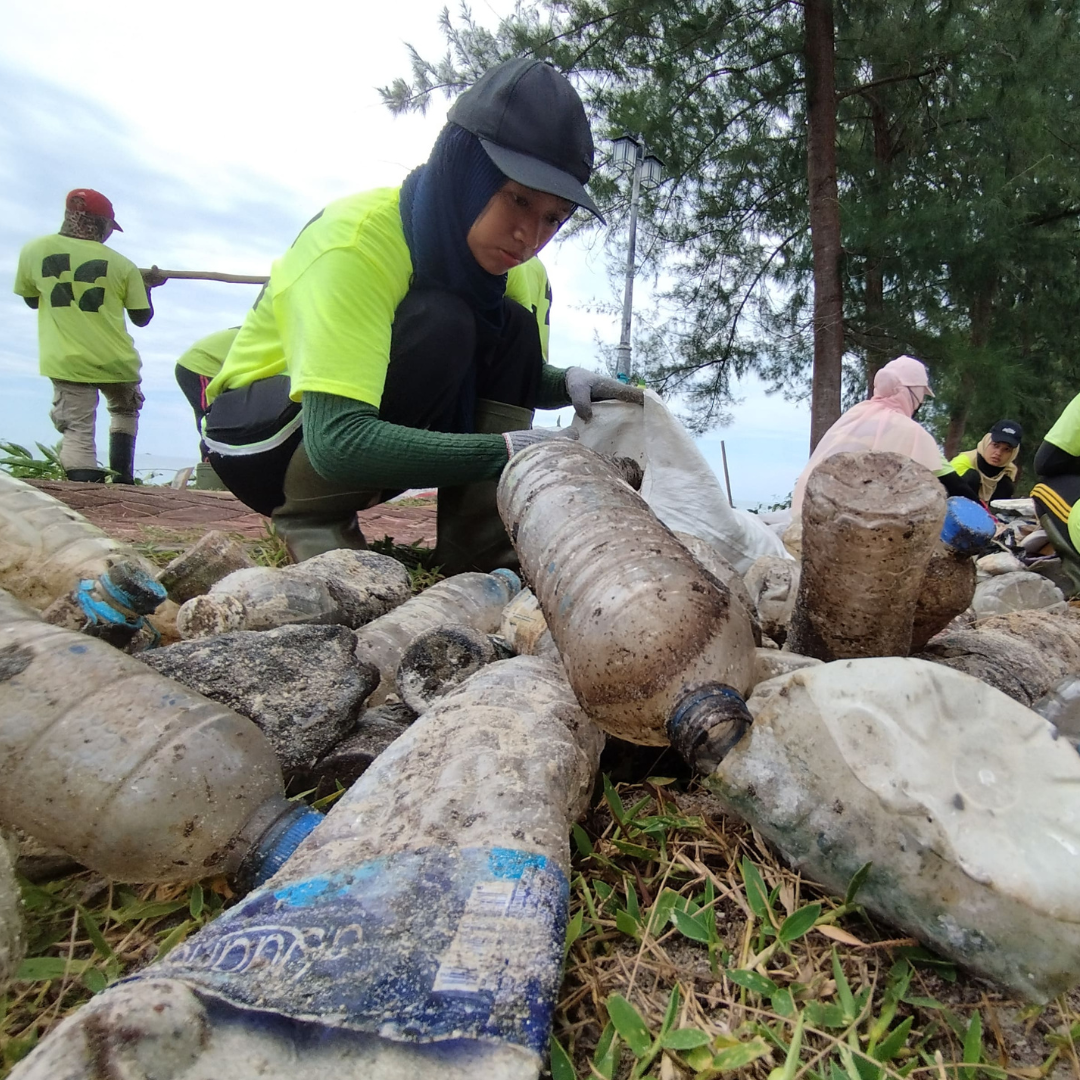
What’s new in the world of ocean, river and beach cleaning?
The trend of cleaning up oceans is new, becoming popular around 2017 spurred on by a few big documentaries around pollution and plastic waste. The real innovation, starting to gain momentum now is plastic credits! We have an in-house team of sustainability consultants who can go into an organisation and help measure the plastic footprint of an office, product, or event. They analyse plastic waste and make recommendations to reduce the plastic footprint moving forward. Each 1,000kg of plastic that we remove from the ocean or prevent from entering the ocean can generate a plastic credit. Companies can buy plastic credits to compensate for their plastic footprint whilst generating positive environmental impact. This generates the funding Seven Clean Seas need to operate and build new projects.
What are you most proud of?
We employ around 70 people as part of our full-time collection crew in Indonesia. These are people who did not have good economic situations prior to being hired. Now they have full-time jobs on living wages, and they can invest in their future. We ran a social questionnaire which asked our people about the benefits of being employed with us. The answers we received were really moving, for example, one employee was able to put their sister through university and another could help their parents pay off a loan. It’s making a real impact to people’s lives that I am just incredibly proud of. Of course, the big elephant in the room is obviously how much plastic we've removed from the environment. As of Tuesday 11th, 2023, this is 1,208,232 kilograms of plastic!
Topics covered
Keep reading...
All blogs-
Spencer Ogden
Spencer Ogden Awarded the Sustainability Leadership Award by Business Intelligence Group
-
SO announcements
$2 billion raised to target green hydrogen projects
-
Spencer Ogden
Earth Day 2022: How Spencer Ogden is powering a more sustainable future
-
Latest sector news
Renewable energy overtakes gas to power Britain
-
SO Careers
SO Careers - Meet Senior Consultant Conor Brown





